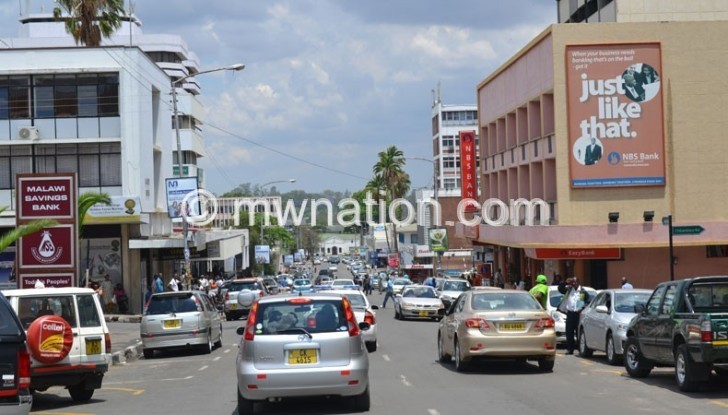Cities losing revenue to fraud
Fraud and revenue under-declaration have short-changed Lilongwe, Blantyre and Zomba city councils, resulting in gross under-performance, The Nation can reveal.
Malawi’s cities, by design, are expected to be semi-autonomous. However, they, in most cases, have been relying on government subvention to carry out their activities despite literally sitting on ‘gold’.

The Nation investigation targeted city revenue collection by looking at how the cities have been losing out on potential income from market fees, pegged at K100 per stall or business plot per day in most city markets and business licence fees whose minimum is K35 000 annually.
A quick spot-check in several markets in Lilongwe revealed that while vendors may be willing to pay market fees and business licences in their respective cities, city councils have not been lucky enough to collect the full dues.
Some vendors at Area 18 Market in Lilongwe revealed that while they are willing to pay the market fees, they are aware that city workers that collect the money persistently under-declare to the city council or they collect the money without issuing any receipts.
“It is quite common in our markets to pay K50 per day without getting a receipt. We also understand that these city workers do have their own receipt books and that the money we pay does not go to the city council,” he said.
One vendor said he does not feel obliged to pay market fees because the city provides poor services, adding: “This is a dangerous place to be…This place is a health hazard. What does the city do?” he queried.

The failure of market users to pay fees and the issuance of fake business licences to businesses in the cities is reflected in the revenue collection of the cities.
For instance, in the 2015/16 fiscal year, Blantyre City Council (BCC) projected to collect at least K3.9 billion from market fees and business licences. But it only collected K2.3 billion, posting a shortfall of K1.6 billion.
In its 2015/16 fiscal projection, Lilongwe City Council (LCC) only collected 80 million while Zomba City Council collected K168 million out of K889 million the city had projected.
On the other hand, Mzuzu City Council, in the 2015/16 financial year, collected K688 million against a K1.2 billion projection.
Meanwhile, LCC spokesperson Tamara Chafunya told The Nation that the city has recorded many cases of fraud and that the city workers were issuing fake business licences, with very little money collected from 35 city markets.
She disclosed that the council embarked on a Revenue Enhancement Campaign in December 2016 which revealed that within the Central Business Division incorporating 2 000 businesses, over 200 had fake licences while some had expired licences whereas others did not have licences at all.
Chafunya said through the campaign, the city collected about K70 million in six weeks—K10 million below what the council collected the whole of 2015-16 financial year.
Meanwhile, the police are said to have confiscated a printing machine which perpetrators were using to print bank receipts that the LCC officers issue when collecting city council money.
On market fees, Chafunya said at the moment the city has no data on how many vendors are operating in their 35 markets, adding: “We want to record how many vendors are selling their merchandise in the markets. So far, information on the ground indicates that there are more people operating in the markets than those recorded by the council.”
She disclosed: “About eight city council workers are on suspension for fraud and seven cases are being pursued in court.”
Chafunya cited Kumbali Lodge in Lilongwe as one of the clients affected.
While BCC seems to be a star performer, the council cannot completely rule out such fraudulent activities taking place. However, so far only few isolated and minor cases have been discovered.
BCC spokesperson Anthony Kasunda said as at February 7 this year, the council had 6 190 registered businesses and 26 markets, from which the council projected to collect K3.9 billion. So far, the council has collected about K1.5 billion from market fees and business licences.
However, BCC has no records on vendors that operate in their markets, saying: “There is a lot of traffic coming into the city during the day to trade.”
On its part Zomba City Council which has seven operational markets and over 1300 businesses, The Nation discovered that seven of its employees were implicated in fraudulent activities.
ZCC spokesperson Mercy Chaluma told The Nation that of those that were caught over the past six months, four were fired, three got disciplinary letters and three disciplinary hearings are still underway.
Commenting on the matter, Mzuzu City Council spokesperson Karen Msiska told The Nation that the council has not experienced such cases recently.
He, however, said there were incidents in 2011, 2012 and in the 2013/14 financial years where some employees in the revenue collection section defrauded the council by presenting fake financial records.





